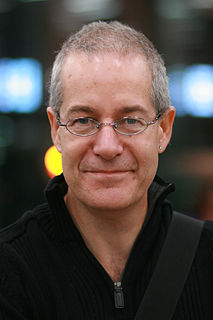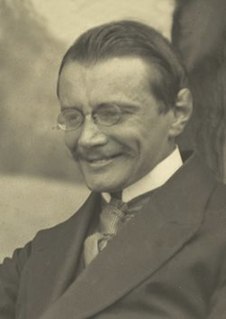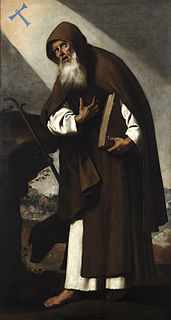A Quote by Marshall McLuhan
The logos of creation, 'And God Said ...' formed the basis of Christian interpretation of the 'Book of Nature.
Related Quotes
If you are a Christian, you can still practice Stoicism and think of the Logos as the Word of God. If you are a secular person, an agnostic or an atheist, you may treat the Logos as "Einstein's god," that is the factual recognition that the cosmos is ordered according to rational principles, without which science itself wouldn't be possible.
Holly is living proof that C.S. Lewis was right when he said that a good atheist can't be too careful of her reading. A lover of the word, she discovered through it the love of the Logos, whose beauty fills all of creation. She found the courage to follow the spilled drops of human imagination back to the One who ‘reflects the glory of God and bears the very stamp of his nature, upholding the universe by his word of power' (Heb 1:3).
It shouldn't be difficult, then, to make the transposition at this point into the early Christian vision of Jesus and the Spirit and the way in which the material world is both celebrated and renewed through their work. The Jewish basis for the early Christian patterns of belief and behavior is clear. It is important that God's people are embodied, because God made this world and has no intention of abandoning it. The material of creation is a vessel made to be filled with God's new life and glory, even though the transformation may involve suffering, persecution, and martyrdom.
God's Providence controls the universe. It is present everywhere. Providence is the sovereign Logos of God, imprinting form on the unformed materiality of the world, making and fashioning all things. Matter could not have acquired an articulated structure were it not for the directing power of the Logos Who is the Image, Intellect, Wisdom, and Providence of God.
Our very name for God's Creation is NATURE, for that is what Nature is. I shall define Nature for you in simple words. Nature is an electric wave thought image of God's nature, electrically projected from His formless and unconditioned ONE LIGHT into countless many forms of conditioned light which we call matter.
Another point important to recognize is that the creation was 'mature' from its birth. It did not have to grow or develop from simple beginnings. God formed it full-grown in every respect, including even Adam and Eve as mature individuals when they were first formed. The whole universe had an 'appearance of age' right from the start. It could not have been otherwise for true creation to have taken place. 'Thus the heavens and the earth were finished, and all the host of them' (Genesis 2:1).
Now, which am I to believe, a book that any impostor might make and call the Word of God, or the creation itself which none but an Almighty Power could make? For the Bible says one thing; and the creation says the contrary. The Bible represents God with all the passions of a mortal, and the creation proclaims him with all the attributes of a God.
When we read about Creation in Genesis, we run the risk of imagining God was a magician, with a magic wand able to do everything. But that is not so. God is not a demiurge [demigod] or a magician, but the Creator who gives being to all entities. Evolution in nature is not opposed to the notion of Creation, because evolution presupposes the creation of beings that evolve.
[T]he scripture worshippers put the writings ahead of God. Instead of interpreting God's actions in nature, for example, they interpret nature in the light of the Scripture. Nature says the rock is billions of years old, but the book says different, so even though men wrote the book, and God made the rock and God gave us minds that have found ways to tell how old it is, we still choose to believe the Scripture.




































